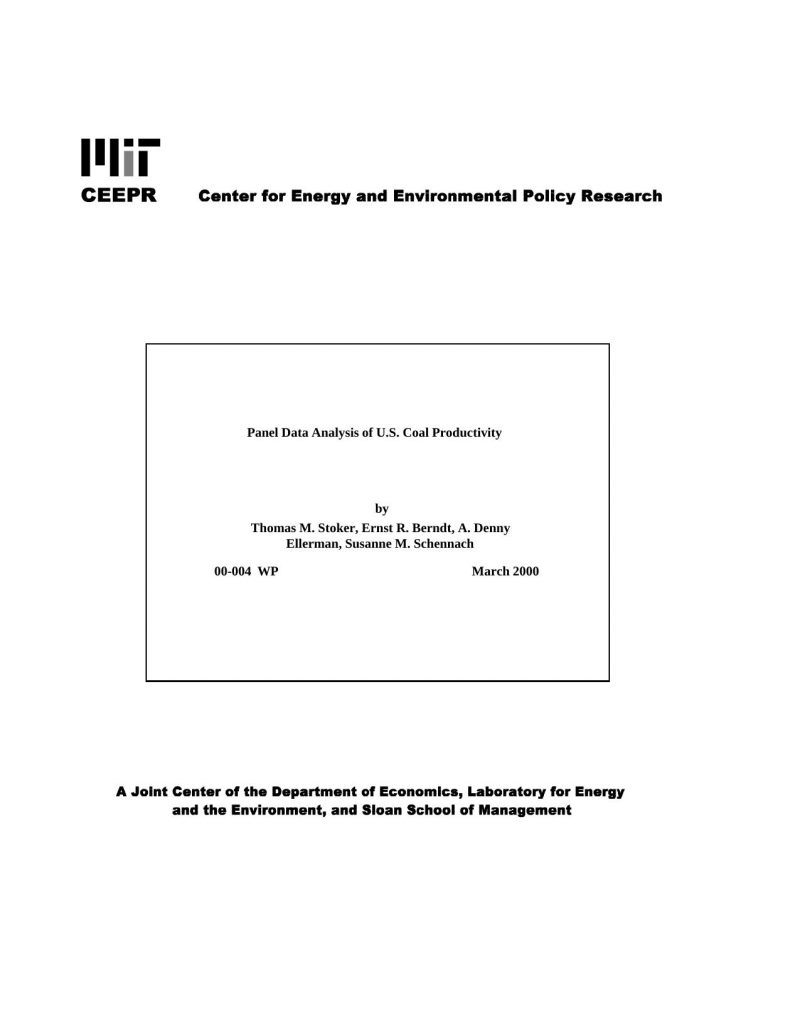Panel Data Analysis of U. S. Coal Productivity
Thomas M. Stoker, Ernst. R. Berndt, A. Denny Ellerman, Susanne M. Schennach
Mar-00
We analyze labor productivity in coal mining in the United States using indices of productivity change associated with the concepts of panel data modeling. This approach is valuable when there is extensive heterogeneity in production units, as with coal mines. We find substantial returns to scale for coal mining in all geographical regions, and find that smooth technical progress is exhibited by estimates of the fixed effects for coal mining. We carry out a variety of diagnostic analyses of our basic model and primary modeling assumptions, using recently proposed methods for addressing ‘errors-in-variable’ and ‘weak instrument bias’ problems, as well a new method for studying errors-in-variables in nonlinear contexts.150. Optimal Design of a Phase-in Emissions Trading Program , Juan Pablo Montero, Public Economics 75: 27391 (2000).
This paper studies a phase-in emissions trading program with voluntary opt-in possibilities for non-affected firms and derives optimal permits allocation to affected and opt-in firms when the environmental regulator has incomplete information on individual unrestricted emissions and control costs. The regulator faces a trade-off between production efficiency (minimization of control costs) and information rent extraction (reduction of excess permits allocated to opt-in firms). The first-best equilibrium can be attained if the regulator can freely allocated permits to affected and opt-in firms; otherwise a second-best equilibrium is implemented. The latter is sensitive to uncertainty in control costs and benefits.



